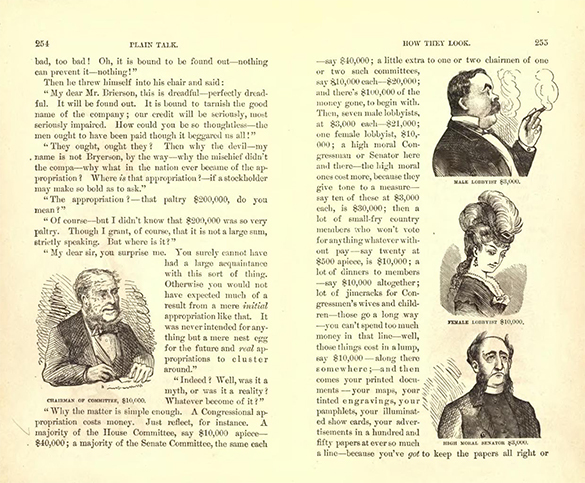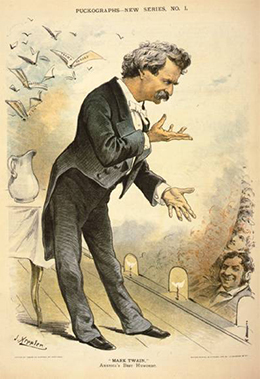| << Chapter < Page | Chapter >> Page > |

Nationally, between 1872 and 1896, the lack of clear popular mandates made presidents reluctant to venture beyond the interests of their traditional supporters. As a result, for nearly a quarter of a century, presidents had a weak hold on power, and legislators were reluctant to tie their political agendas to such weak leaders. On the contrary, weakened presidents were more susceptible to support various legislators’ and lobbyists’ agendas, as they owed tremendous favors to their political parties, as well as to key financial contributors, who helped them garner just enough votes to squeak into office through the Electoral College. As a result of this relationship, the rare pieces of legislation passed were largely responses to the desires of businessmen and industrialists whose support helped build politicians’ careers.
What was the result of this political malaise? Not surprisingly, almost nothing was accomplished on the federal level. However, problems associated with the tremendous economic growth during this time continued to mount. More Americans were moving to urban centers, which were unable to accommodate the massive numbers of working poor. Tenement houses with inadequate sanitation led to widespread illness. In rural parts of the country, people fared no better. Farmers were unable to cope with the challenges of low prices for their crops and exorbitant costs for everyday goods. All around the country, Americans in need of solutions turned further away from the federal government for help, leading to the rise of fractured and corrupt political groups.
Mark Twain ( [link] ) wrote The Gilded Age: A Tale of Today with his neighbor, Charles Dudley Warner, as a satire about the corrupt politics and lust for power that he felt characterized American society at the time. The book, the only novel Twain ever co-authored, tells of the characters’ desire to sell their land to the federal government and become rich. It takes aim at both the government in Washington and those Americans, in the South and elsewhere, whose lust for money and status among the newly rich in the nation’s capital leads them to corrupt and foolish choices.

In the following conversation from Chapter Fifty-One of the book, Colonel Sellers instructs young Washington Hawkins on the routine practices of Congress:
“Now let’s figure up a little on, the preliminaries. I think Congress always tries to do as near right as it can, according to its lights. A man can’t ask any fairer than that. The first preliminary it always starts out on, is to clean itself, so to speak. It will arraign two or three dozen of its members, or maybe four or five dozen, for taking bribes to vote for this and that and the other bill last winter.”
“It goes up into the dozens, does it?”
“Well, yes; in a free country likes ours, where any man can run for Congress and anybody can vote for him, you can’t expect immortal purity all the time—it ain’t in nature. Sixty or eighty or a hundred and fifty people are bound to get in who are not angels in disguise, as young Hicks the correspondent says; but still it is a very good average; very good indeed. . . . Well, after they have finished the bribery cases, they will take up cases of members who have bought their seats with money. That will take another four weeks.”
“Very good; go on. You have accounted for two-thirds of the session.”
“Next they will try each other for various smaller irregularities, like the sale of appointments to West Point cadetships, and that sort of thing— . . . ”
“How long does it take to disinfect itself of these minor impurities?”
“Well, about two weeks, generally.”
“So Congress always lies helpless in quarantine ten weeks of a session. That’s encouraging.”
The book was a success, in part because it amused people even as it excoriated the politics of the day. For this humor, as well as its astute analysis, Twain and Warner’s book still offers entertainment and insight today.

Notification Switch
Would you like to follow the 'U.s. history' conversation and receive update notifications?